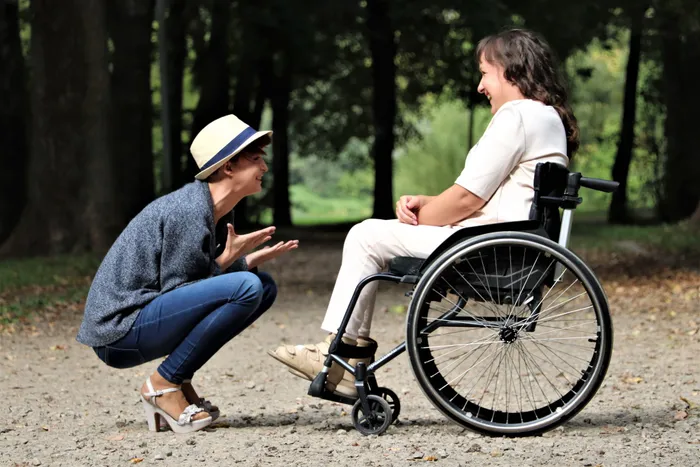Healthcare inequalities among persons with disabilities frequently cause premature death, claims WHO

People with disabilities are highly capable and can do most tasks within reason. They should be respected and appreciated for their contributions. Picture: Judita Tamošiūnaitė Pexels
People living with disabilities strive each day, sometimes against exceptional odds, to be considered productive and valued members of society.
“Generally, however, people with disabilities are highly capable and can do most tasks within reason. They should, in every sense of the word, be respected and appreciated for their contributions,” notes Sibo Dube, patient advocacy lead at global health-care company Novartis.
A recent World Health Organization report claims that health-care inequalities among persons with disabilities frequently cause premature death, sometimes by as much as 20 years. The list of limiting factors also includes the attitudes of health-care professionals, the difficulty in understanding medical information presented, and access to health-care practitioners.

Dube explains that medically speaking, disabilities are by their very nature advanced health issues and that people living with disabilities are unfortunately at a considerably higher risk of contracting additional illnesses. As such, they should be receiving individualised and frequent care from specialised health-care providers.
“Change always begins with acknowledging that a problem exists. It’s crucial that as a society, we raise awareness on the topic of disabilities, learning and teaching others how to correctly work with people with disabilities, and promoting positive change.”
What constitutes a disability?
There are many different types, levels and severity of disability, and each one should be handled individually.
There are three main categories of disability: impairments of a person’s physical or mental structure and functions, such as loss of a limb, vision, or memory; activity restrictions, such as trouble hearing or walking; and participation limitations, such as being unable to work or take part in social and recreational activities.
According to Dube, physical injuries, musculoskeletal disorders, poor overall health, obesity, epilepsy, heart disease, Parkinson’s disease, mental health issues, and depression are among the causes and risk factors for disability. These can impair a person’s eyesight, hearing, memory, and capacity to study, communicate, or think and can result in prejudice and stigma in society.
Persons with disabilities are also twice as likely to develop other conditions such as depression, asthma, diabetes, bodily pains and obesity, as certain conditions adversely affect the body in other ways.
Appropriate etiquette
Dube goes on to say that it’s quite challenging for someone who hasn’t worked with or interacted with persons with disabilities previously to know how to do so professionally or appropriately. It is crucial that health-care professionals know how to deal with and assist those who have a disability.
“It involves a careful balancing act between treating these individuals as you would any other person and integrating them into all aspects of society while paying particular attention to or taking into account their unique requirements.
“One piece of advice I frequently share with others is to focus on these individuals’ strengths and abilities rather than any impairments.”
Other etiquette tips include:
Ask before assisting someone.
Use neutral, respectful and non-offensive language.
Find and focus on commonalities and mutual interests.
Make natural eye contact at their eye level.
Do not underestimate a person’s abilities.
Where relevant, explain complex concepts in simple terms.
Always be patient.
Make facilities more easily accessible.
She notes: “It’s good to always be respectful, treat others as you want to be treated, and just be yourself.”
Novartis is committed to raising awareness of public health issues, including disability, and to promoting better global health care.
The organisation’s goal is to create science-based innovation that results in groundbreaking medications and goods that improve patient outcomes. Its ongoing studies aim to significantly enhance the health and quality of life for persons with disabilities, particularly in the fields of ageing and regenerative medicine, says Dube.